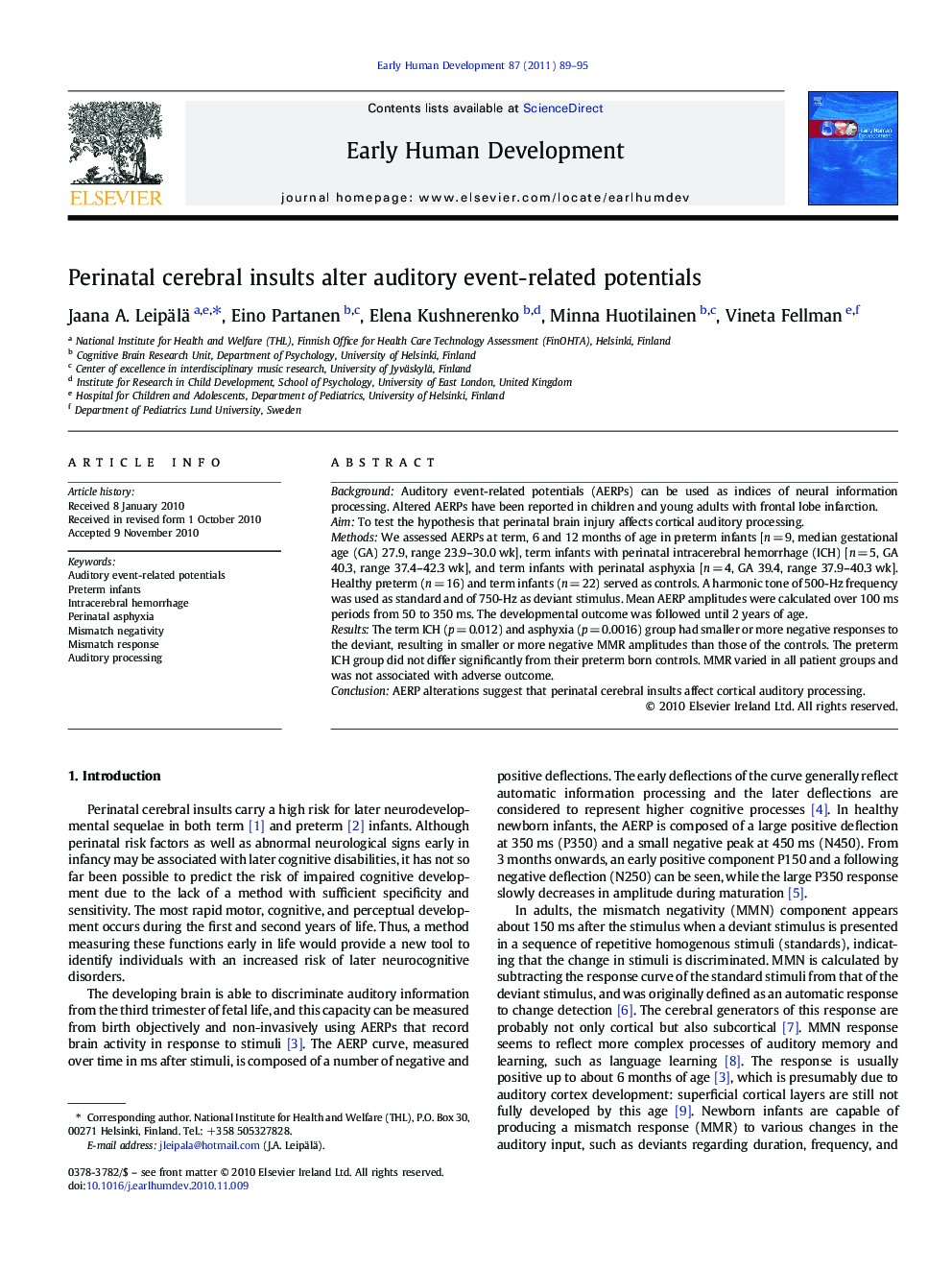| Article ID | Journal | Published Year | Pages | File Type |
|---|---|---|---|---|
| 3917229 | Early Human Development | 2011 | 7 Pages |
BackgroundAuditory event-related potentials (AERPs) can be used as indices of neural information processing. Altered AERPs have been reported in children and young adults with frontal lobe infarction.AimTo test the hypothesis that perinatal brain injury affects cortical auditory processing.MethodsWe assessed AERPs at term, 6 and 12 months of age in preterm infants [n = 9, median gestational age (GA) 27.9, range 23.9–30.0 wk], term infants with perinatal intracerebral hemorrhage (ICH) [n = 5, GA 40.3, range 37.4–42.3 wk], and term infants with perinatal asphyxia [n = 4, GA 39.4, range 37.9–40.3 wk]. Healthy preterm (n = 16) and term infants (n = 22) served as controls. A harmonic tone of 500-Hz frequency was used as standard and of 750-Hz as deviant stimulus. Mean AERP amplitudes were calculated over 100 ms periods from 50 to 350 ms. The developmental outcome was followed until 2 years of age.ResultsThe term ICH (p = 0.012) and asphyxia (p = 0.0016) group had smaller or more negative responses to the deviant, resulting in smaller or more negative MMR amplitudes than those of the controls. The preterm ICH group did not differ significantly from their preterm born controls. MMR varied in all patient groups and was not associated with adverse outcome.ConclusionAERP alterations suggest that perinatal cerebral insults affect cortical auditory processing.
